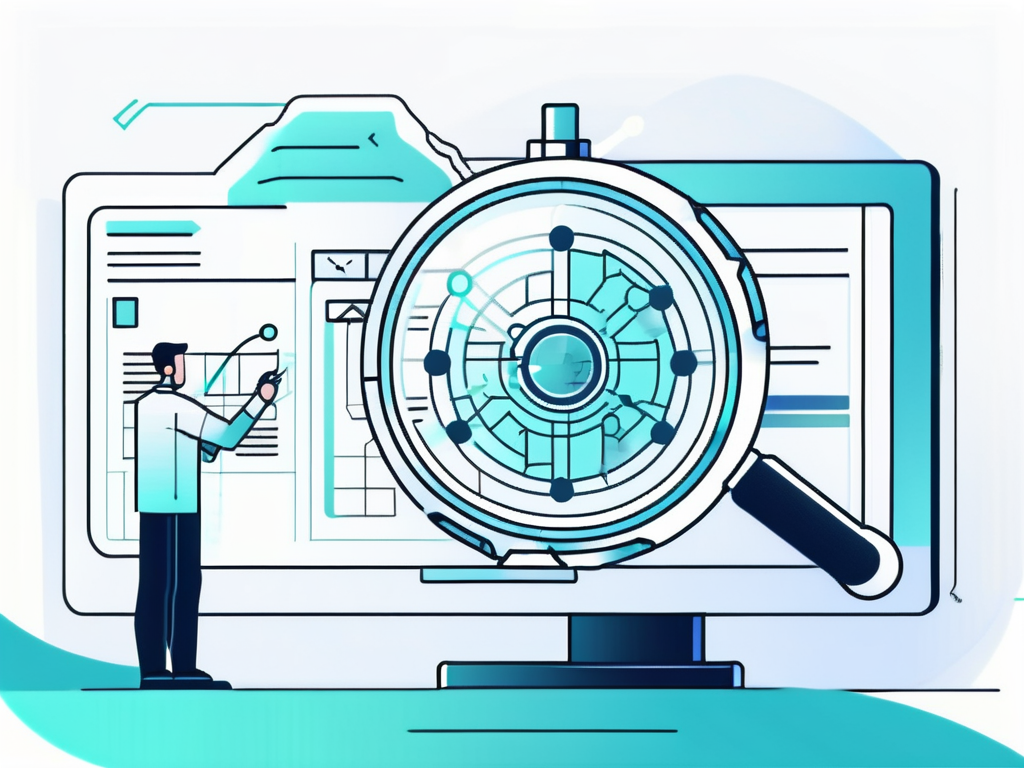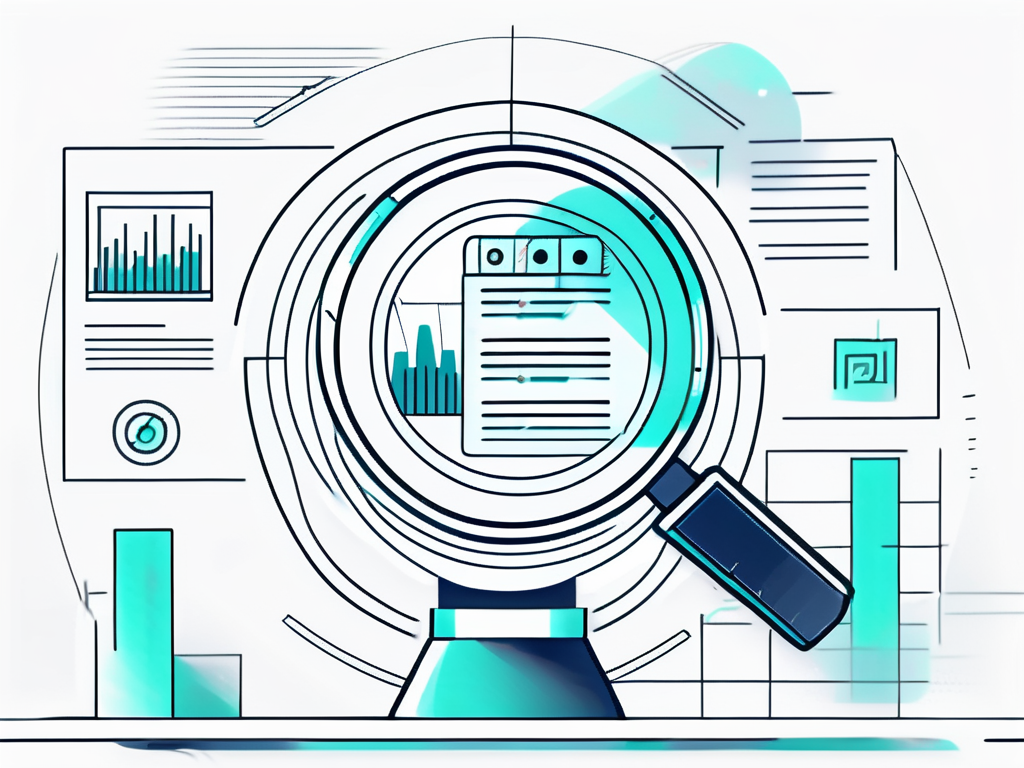Send Us Your CV
Send us a copy of your CV and we'll see if you match any open opportunities we have.
ContentsUnderstanding the Role of AI in Compliance HiringThe Intersection of AI and Complian...

Advances in artificial intelligence (AI) are revolutionising various industries, and compliance hiring is no exception. As organisations strive to navigate complex regulatory frameworks, they are turning to AI to streamline hiring processes and enhance overall compliance efforts. In this article, we will delve into the role of AI in compliance hiring, explore its impact on job roles, discuss the benefits and challenges associated with its implementation, and finally, look towards the future to see how AI will further shape the compliance hiring landscape.
To grasp the role of AI in compliance hiring, it is vital to understand the intersection between the two fields. Compliance, as a function, ensures that organisations adhere to laws, regulations, and internal policies. Similarly, AI, with its ability to analyse vast amounts of data and automate processes, can significantly augment compliance efforts. By leveraging AI technologies, organisations can efficiently screen, evaluate, and onboard candidates with the necessary knowledge, skills, and attributes for compliance roles.

AI intersects with compliance hiring in many ways. Firstly, it enables organisations to identify high-risk areas and proactively address potential compliance issues. By analysing historical data and patterns, AI algorithms can provide insights and predictions that aid in developing robust compliance strategies.
For example, AI can analyse data from various sources, such as financial records, customer complaints, and regulatory filings, to identify patterns that may indicate potential compliance violations. This approach allows organisations to take corrective actions before issues escalate, minimising the risk of legal and reputational damage.
Secondly, AI-driven tools can help automate time-consuming tasks such as resume screening and candidate evaluation. Recruiters can focus their attention on more strategic activities, reducing the likelihood of human error in the hiring process.
Imagine a scenario where a compliance team needs to review hundreds of resumes to identify candidates with specific compliance certifications. AI-powered resume screening tools can quickly analyse the content of each resume, flagging those that meet the desired criteria. This automation not only saves time but also ensures a more objective and consistent evaluation process.
Various AI technologies are employed in compliance hiring. Natural Language Processing (NLP) enables machines to understand and analyse human language, facilitating the review of legal contracts, policies, and regulatory documents. Machine Learning (ML) algorithms, on the other hand, can assess candidate suitability based on historical hiring data, improving the accuracy and efficiency of the selection process.
For instance, NLP algorithms can analyse complex legal documents and extract relevant information, such as clauses related to compliance requirements. This not only speeds up the review process but also ensures that nothing important is overlooked.
Additionally, Robotic Process Automation (RPA) assists in automating repetitive tasks, freeing up valuable time for compliance professionals. These technologies, alongside others like predictive analytics and sentiment analysis, empower organisations to make informed hiring decisions.
Imagine a compliance team spending hours manually inputting data from various sources into spreadsheets for analysis. RPA can automate this process by extracting data from different systems, consolidating it, and generating reports. This not only saves time but also reduces the risk of human error that can occur during manual data entry.
In conclusion, AI plays a crucial role in compliance hiring by enabling organisations to proactively address compliance issues, automate time-consuming tasks, and leverage advanced technologies for informed decision-making. As the field of AI continues to evolve, its impact on compliance hiring is likely to expand, revolutionising the way organisations identify and onboard top talent for compliance roles.
As AI takes over repetitive tasks, compliance professionals need to adapt and embrace new responsibilities. Roles that historically focused on manual data entry, for example, now require individuals who can leverage AI tools effectively. Proficiency in working with AI platforms, interpreting AI-generated insights, and applying them to compliance strategies become essential for success in these roles.
Moreover, as AI augments decision-making processes, compliance professionals now need to possess critical thinking skills in addition to domain expertise. The ability to interpret and contextualise AI-generated recommendations is crucial for making informed compliance decisions.
In the AI-driven compliance landscape, professionals must develop a blend of technical and soft skills to thrive. While technical skills such as data analytics, programming, and AI tool proficiency are increasingly in demand, soft skills remain vital.
Professionals who can communicate effectively, collaborate in cross-functional teams, and navigate complex ethical considerations associated with AI implementation are highly sought after. Building a skill set that encompasses both technical and soft skills ensures that compliance professionals can adapt and excel in this evolving landscape.
Furthermore, the integration of AI into compliance job roles also brings about the need for continuous learning and upskilling. Compliance professionals must stay updated with the latest advancements in AI technology and its implications for the industry. This includes understanding the ethical and legal frameworks surrounding AI, as well as staying informed about emerging AI tools and platforms.
Additionally, the use of AI in compliance processes opens up new possibilities for automation and efficiency. Compliance professionals can now focus their efforts on more complex and strategic tasks, such as analysing patterns and trends in data to identify potential risks and develop proactive compliance strategies. This shift in responsibilities allows compliance teams to become more proactive and forward-thinking in their approach, ultimately enhancing the overall effectiveness of compliance programs.
Implementing AI in compliance hiring brings forth a host of benefits, enhancing efficiency and accuracy, and enabling predictive analysis and risk management.
AI streamlines the hiring process by automating time-consuming tasks, such as resume screening and candidate evaluation. Recruiters can leverage AI-powered tools to speed up initial screenings while ensuring a consistently objective evaluation process. This not only saves time but also enables recruiters to focus on building meaningful relationships with candidates.
Furthermore, AI can perform repetitive tasks with precision, significantly reducing the likelihood of human error that may arise from fatigue or oversight. Accuracy in compliance hiring is crucial, as it helps organisations assess candidates' adherence to regulations and make informed decisions based on reliable information.
By analysing vast amounts of data, AI algorithms can identify patterns and trends that human analysts might miss. This capability enhances predictive analysis, allowing organisations to proactively identify and address potential compliance risks. By taking a data-driven approach, organisations can better position themselves to tackle emerging regulatory challenges.
AI empowers compliance professionals to manage risks more effectively. AI-powered monitoring systems continuously scan for compliance violations, alerting organisations to potential breaches in real-time. This advanced risk management capability helps organisations prevent costly penalties and reputational damage associated with compliance failures.
While the benefits of incorporating AI into compliance hiring are evident, there are also notable challenges and concerns that organisations must navigate.
AI introduces ethical considerations into the hiring process. Bias in AI algorithms, for instance, can perpetuate systemic inequalities, leading to unfair discrimination. Organisations must proactively address these concerns by ensuring transparency in algorithm training and regular audits to detect and rectify biases.
Additionally, organisations need to balance the use of AI with human judgment. While AI can automate tasks and provide valuable insights, human expertise is still essential to interpret, contextualise, and make final decisions based on AI-generated recommendations.
Implementing AI in compliance hiring requires the collection and processing of candidate data. Organisations must prioritise data privacy and security to protect candidates' personal information. Compliance with data protection regulations, such as the General Data Protection Regulation (GDPR), is paramount. Organisations should adopt robust security measures and ensure that candidate data is stored securely, minimizing the risk of data breaches.
As AI continues to advance, its role in compliance hiring will expand and shape the sector in various ways. Several emerging trends and predictions provide insights into what the future holds.

One trend is the increasing use of AI-powered chatbots in candidate screening and engagement. Chatbots can conduct initial screenings, answer candidate queries, and provide real-time updates, creating a more interactive and efficient hiring experience.
Another trend is the integration of AI with video interviewing platforms. AI algorithms can analyse facial expressions, tone of voice, and speech patterns to identify potential red flags or indications of candidate suitability. This integration enhances the assessment process, allowing organisations to make more informed hiring decisions.
As AI technology continues to evolve, organisations need to invest in training and upskilling their workforce. By equipping employees with the necessary technical skills and fostering a culture of adaptability, organisations can create a workforce prepared to navigate the AI-driven compliance sector.
Additionally, organisations should actively collaborate with industry partners, regulators, and experts to develop ethical frameworks and guidelines that govern the use of AI in compliance hiring. These efforts will ensure that AI is leveraged responsibly and for the benefit of organisations, candidates, and society as a whole.
Advances in AI are reshaping compliance hiring. While challenges and concerns exist, proactively addressing ethical considerations and ensuring data privacy and security can mitigate risks. As the future unfolds, organizations must embrace the opportunities offered by AI, adapt their hiring practices, and prepare their workforce for an AI-driven compliance landscape.
Stay ahead in the compliance sector. Let us help you navigate AI-driven hiring with our expertise. Contact us today!